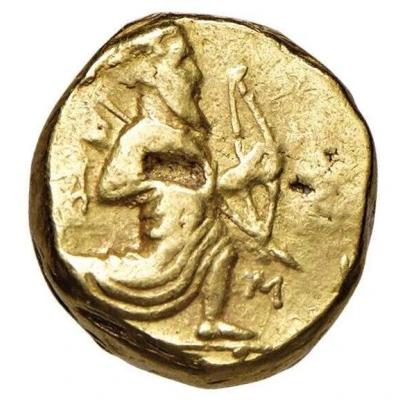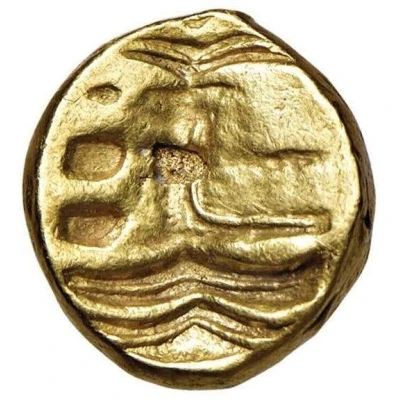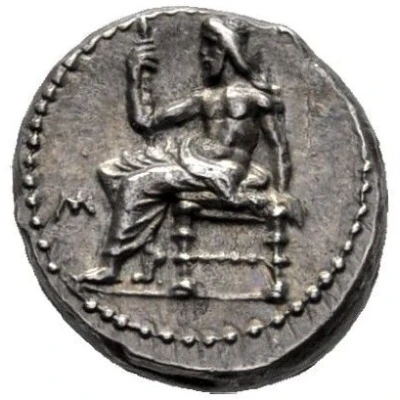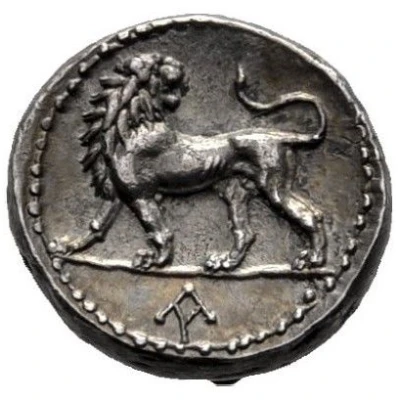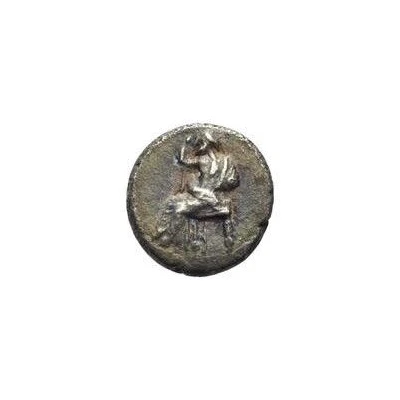
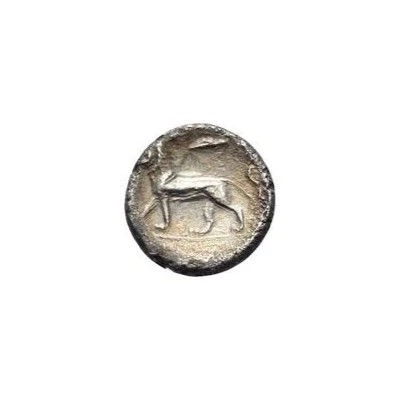

© Nomos AG
Hemiobol Babylon 328 BC - 311 BC
| Silver | 0.47 g | 7.74 mm |
| Issuer | Satrapy of Babylon (Alexandrian Empire in Persia (330 BC - 305 BC)) |
|---|---|
| Satrap | Stamenes (328 BC - 311 BC) Seleucus (321-315 BC; 311-305 BC) |
| Type | Standard circulation coin |
| Years | 328 BC - 311 BC |
| Value | Hemiobol (1⁄12) |
| Currency | Drachm (330-305 BC) |
| Composition | Silver |
| Weight | 0.47 g |
| Diameter | 7.74 mm |
| Shape | Round (irregular) |
| Technique | Hammered |
| Orientation | Variable alignment ↺ |
| Demonetized | Yes |
| Updated | 2024-10-10 |
| Numista | N#413949 |
|---|---|
| Rarity index | 97% |
Reverse
Lion walking to left, spearhead to left above.
Interesting fact
One interesting fact about the Hemiobol coin is that it was used as a form of currency during the reign of Alexander the Great, who conquered a vast portion of the known world, creating one of the largest empires in history. Despite the coin's small size and relatively low value, it played a significant role in facilitating trade and commerce across the empire.
